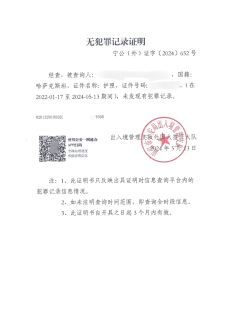
The new draft of the Anti-Money Laundering Law (Amended) was submitted to the Standing Committee of the National People's Congress of China for a second review in September 2024, WilmerHale reports.
If the bill passes in its proposed form in three readings, it will be the first major change to China's anti-money laundering laws in 17 years. Lawmakers supported it in the first reading in April 2024.
The amendments aim to modernize and strengthen China's legal framework to combat money laundering and terrorist financing, reflecting changing global standards, experts said.
According to Pan Gongsheng, Governor of the People's Bank of China, although China's anti-money laundering legal regime has made significant progress, problems still remain. These include the failure of some institutions to effectively implement their anti-money laundering obligations, the ineffectiveness of the coordination mechanism for supervision and information sharing, and the need for stricter monitoring and enforcement of anti-money laundering measures. At the same time, China needs to address the complex issues related to money laundering in the areas of anti-corruption, underground financial services, and gambling. Strengthening anti-money laundering laws plays an important role in combating financial crime, which flexibly adapts to the changing legal environment.
The new amendments focus on issues of ensuring national security. The bill includes a provision stating that anti-money laundering activities are carried out not only to maintain financial order, but also to protect state security.
Previously, China's legislation contained an exhaustive list of crimes, the legalization of funds obtained as a result of which was punished separately as money laundering. These included drug trafficking, banditry, terrorism, smuggling, corruption, bribery, crimes in the field of financial management and financial fraud. Now it is proposed to consider money laundering as an attempt to conceal funds obtained as a result of any illegal act.
Lawmakers plan to expand anti-money laundering requirements to include developers, real estate agencies, accountants, lawyers, notaries, asset managers and sellers of precious metals.
The bill separately sets out requirements for the protection of personal information obtained during anti-money laundering measures. It is planned to strictly prohibit its use by anyone except specially authorized structures. Such data will be protected by government agencies.
The authors of the bill also included procedures for identifying the beneficial owners of organizations. Anti-money laundering and other regulatory bodies, according to the plans of the legislators, will have to create a special system for managing information about beneficiaries. Financial and some other institutions will be required to request and verify data on the ultimate owners of legal entities. The bill also contains a definition of a beneficial owner as an individual who exercises ultimate ownership or ultimate control over a company.
In addition, legislators propose to expand the procedures for studying clients. For example, the ability to open any accounts without disclosing one's true identity will be completely blocked. When concluding any contract (for example, insurance), service providers will have to determine the identity of the beneficiary.
The Chinese government plans to expand the network of agencies involved in anti-money laundering investigations. In particular, these powers will be granted to law enforcement agencies operating at the municipal level.
What is a commercial register?
In our video we explain the definition and function of a commercial register and how you can verify the reliability and solvency of your foreign business partner.
Should you wish to check the sincerity of your foreign business partner’s request, Schmidt&Schmidt will gladly assist you.
We offer extracts from the commercial registers of more than 100 different registers in countries spread all around the globe. Additionally, we offer annual statements for a variety of companies. The original extract from any commercial register can be sent to you by mail or as a pdf-file via e-mail. Besides that, commercial register extracts can be authenticated with an apostille.





